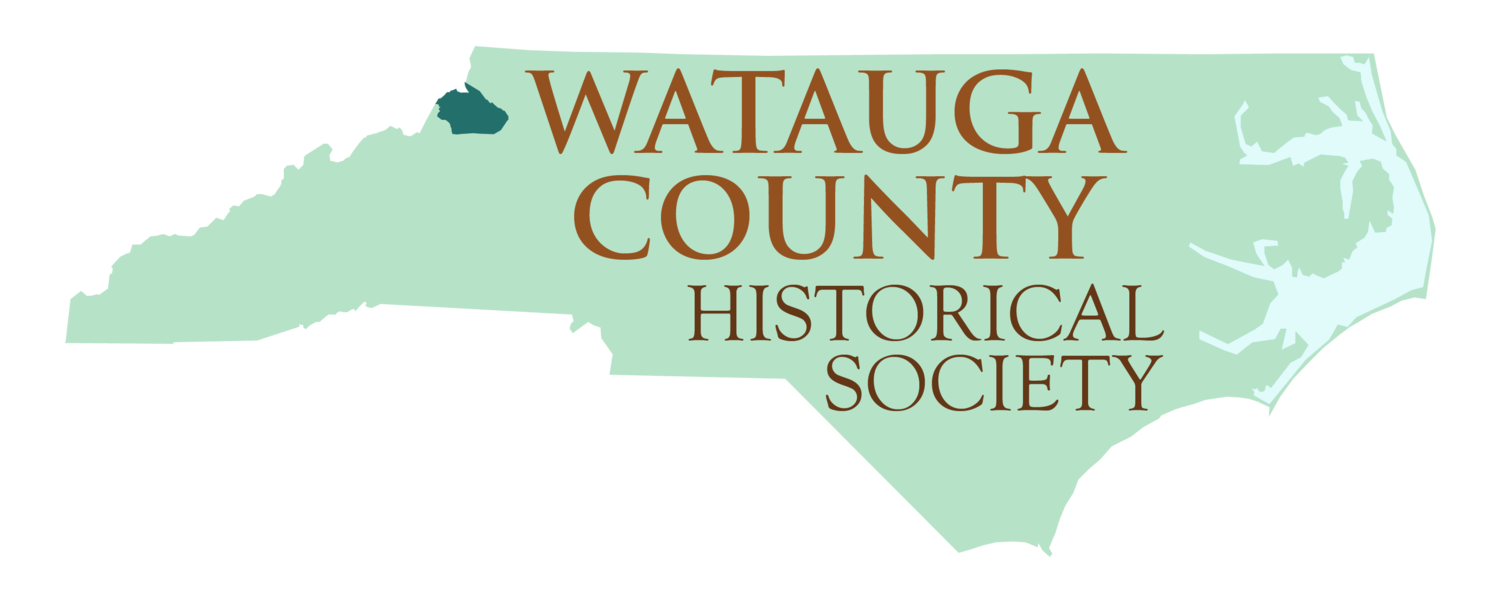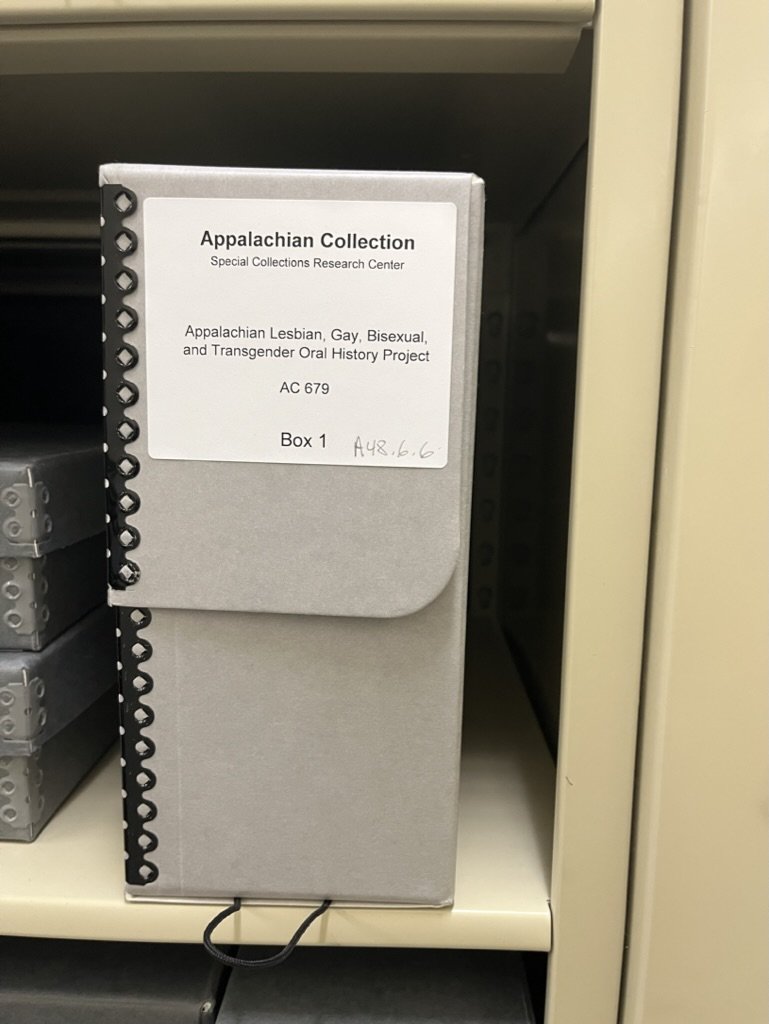Adelia Daly
December 9, 2024
The Watauga County Historical Society (WCHS) continues to expand its roster of Hall of Fame inductees for the year 2024, building on an initiative started in 2022 as part of Boone’s 150th celebrations. WCHS is delighted to announce that Kathryn Lynn Staley (born 1971) has been selected as one of this year’s inductees.
Kathy Staley was born in Detroit and later moved to Western North Carolina due to her family’s ties to Wilkes County. She graduated from Northwest Cabarrus High School in Concord, NC, in June 1989. As Staley’s education and career moved along, she attended UNC Chapel Hill with the goal of becoming an English teacher, obtaining a Bachelor of Arts degree in Secondary Education with a concentration in English and a minor in Afro-American Studies. After visiting a historical site and realizing her interests lay in history, Staley moved to Boone to attend Appalachian State University (ASU) for her graduate degree. Her major focus was in Appalachian history and culture, and this lens informed her later projects.
Title page from Kathryn Lynn Staley’s second Master’s degree thesis. Image courtesy of Appalachian State University Library.
Staley started attending ASU during the late 1990s, earning a Master’s degree in Appalachian Studies in 1999 and a second Master’s degree in History in 2009. In between she worked as an archivist for the W. L. Eury Appalachian Collection at ASU’s Belk Library. The period of Staley’s attendance at ASU coincided with an era of LGBTQ student and faculty organizing. Several clubs and organizations had been created in the years preceding Staley’s arrival, both in the college and the community at large. The Sexuality and Gender Alliance club (SAGA), for example, hosted drag shows and promoted student activism. At the same time, Terry Taylor founded an AIDS support group and expanded it into a chapter of Parents, Families, and Friends of Lesbians and Gays (PFLAG). Amidst the rise of these groups, Appalachian State University added LGBTQ people to their anti-discrimination policy and worked to expand the policy to the rest of the UNC System.
Upon Staley’s arrival, she quickly became involved with these organizations and the LGBTQ community as a whole. Working with groups such as SAGA, she helped plan early Pride events and participated in activism on campus. Her involvement increased after she was hired as an archivist at the Belk Library. From this position, she pulled together a group for LGBTQ faculty to build community and work towards workplace equality. She also served as the faculty advisor for the creation of TransAction, an advocacy and support group for transgender students at the university. Additionally, she served on the planning committee for the creation of the Henderson Springs LGBTQ+ Resource Center in 2008.
As an archivist at Belk Library, Kathy Staley conducted several oral history interviews designed to expand the demographic scope of the Appalachian State University Oral History Project that first started in 1973. She also worked to launch the Appalachian State Memory Project in 2006. At the same time as these oral history projects, she completed research on the Boone City Cemetery and assisted Dr. Susan Keefe in a study of the Boone Mennonite Brethren Church as part of documentation of the history of the Junaluska community. Staley did much of this work while also completing her History Master’s degree at the university.
Kathy Staley’s first school project was a study on the free and enslaved peoples who resided in Wilkes County. Through this project, she endeavored to uncover the names of a largely obscured group in Wilkes County’s history. This effort was informed by and furthered Staley’s interest in preserving the history of marginalized groups. When it came time for her Master’s thesis, she briefly considered doing a similar project for the free and enslaved peoples of Ashe County, before deciding to research the LGBTQ history of Appalachian State University.
Image showing Box 1 of the Appalachian Lesbian, Gay, Bisexual, and Transgender Oral History Project at the Special Collections Research Center at ASU’s Belk Library. Image courtesy of the Appalachian State University Library.
Staley researched LGBTQ history in the university because of her connection to the community and her prior experience with oral history. Due to the LGBTQ community’s marginalization, there were very few traditional sources, so Staley set out to document the experiences of various students, faculty, and community members. She interviewed a number of people, then used those interviews to write her Master’s thesis, “Lesbian, Gay, Bisexual, and Transgender Life At Appalachian State University.” The work was finished in 2009 and continues to be one of the foremost studies on the LGBTQ experience at Appalachian State University. Later that year, she expanded this research with Mike Howell into the Appalachian Lesbian, Gay, Bisexual, and Transgender Oral History Project at the Belk Library.
Kathryn Staley’s groundbreaking contributions to the development and documentation of the LGBTQ community during its growth and healing in the wake of the AIDS crisis were extremely important. The preservation of this history has been vital in keeping alive the stories that may have otherwise been lost. Staley’s efforts are emblematic of the hard work of countless individuals who brought together a fractured, marginalized group and reignited their hope. But it is her history work that has recorded the names of these individuals and the obstacles that they faced for anyone who wishes to learn from their experiences. Although Staley has since moved away from Watauga County, we treasure her additions to Watauga County’s historical record and community.
The WCHS Hall of Fame honors individuals, either living or dead, who have made significant and lasting contributions to Watauga County’s history and/or literature, including those whose efforts have been essential to the preservation of Watauga County’s history and/or literature. Honorees need not have been residents of Watauga County. The WCHS is particularly interested in honoring individuals who meet the above criteria but who may have been overlooked in traditional accounts of Watauga County’s history and literature, including women and people of color. Selections for this class were made from nominations submitted by members of the Digital Watauga Project Committee (DWPC) of WCHS as well as the public.
References
Daly, Adelia, and Sai Estep. “Interview with Kathryn Staley.” November 1, 2024.
Staley, Kathryn. “Lesbian, Gay, Bisexual, and Transgender Life at Appalachian State University.” Master’s Thesis, Boone, Appalachian State University, 2009.
Staley, Kathryn, and Howell, Mike. The Appalachian Lesbian, Gay, Bisexual, and Transgender Oral History Project. Appalachian State University, 2010.



